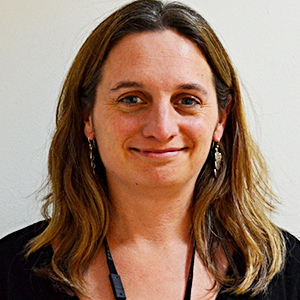Guest blog by Jocelyn Cornwell, Director of The Point of Care Foundation
I doubt it has escaped your notice that Bruce Keogh and Don Berwick are basically saying the same things as Robert Francis. All three say:
- Put patients first; listen to and involve them
- Listen to your staff; nurture and support them
- Quantitative data has strengths but is limited. Collect stories from your patients and staff; use and value qualitative data
- Regulation is not the answer. Where quality of care and patient safety are concerned, it is the culture of teams and organisations that count.
The recommendations are right, but it is obvious that healthcare organisations everywhere, not just in the NHS, find it very difficult to put them into practice. Why?
I’ve been thinking about these issues since the Point of Care programme started at the Kings Fund and am still thinking about them six years later having established the Point of Care Foundation as an independent charity. Six years ago, people said: “Of course, patients’ experience of care is important, but you won’t get boards and senior people to take it seriously.”
They don’t say that now, but that does not mean it has become a whole lot easier to change things on the ground.
Our work with front line staff and senior leaders in the NHS has shown me some of the things that we need to face head-on to make care better for patients.
- Health professionals – doctors, therapists, nurses and managers –at every level of the hierarchy are reluctant to engage with patients’ experience. They like the idea, but would prefer someone else to do the leg work: students, junior staff, volunteers, and governors. I’ve seen this so often that I’ve come to the conclusion that, deep down, health professionals must be afraid of seeing their own service through their patients’ eyes. Afraid, perhaps, that it will not be as good as they think it is; or that they will be overwhelmed by patients’ needs; or that they’ll see problems they can’t fix. The good news is that when they finally do come round to shadowing patients, or sitting quietly doing structured observations of care, they think it’s brilliant and useful and find it fantastically energising. Invariably, they immediately see what they can do to make things better for their own patients and find the work inspiring.
- There is – as Berwick acknowledges - an immense lack of improvement know-how in NHS organisations and on the front-line. Senior doctors and nurses, allied therapists, staff nurses, doctors in training – don’t know how to set improvement goals for their own service; how to carry out tests of change and then scale them up; how to collect data and measure for improvement. All organisations need in-house improvement capability and a plan to teach these basic methods to front line staff in all clinical areas.
- Despite the weight that Francis, Keogh and Berwick all attach to qualitative data, and listening to patient and staff stories, there is a deep scepticism about these approaches in the NHS, especially amongst senior doctors and managers. Health professionals are suspicious of small numbers; stories are described dismissively as ‘anecdotes’. Paradoxically, when health professionals become patients, they see the power and importance of individual experience, and often become compelling story tellers themselves.
- The Francis/ Keogh/Berwick recommendations represent a fundamental challenge to senior leaders. Very few currently spend much time with front line staff and patients, or do so regularly. Their diaries are too full, their other commitments too numerous and the urgent pressures too great. It takes personal courage for senior people to ask each other “Are our priorities right?” “Do we need to change?” Most senior leaders’ positions are objectively insecure. People do not stay in post for long; there is constant churn in leadership teams; teams rarely have enough time to get acquainted with each other. If we want senior people to show that kind of courage, senior teams must become more stable, so that leaders can examine what they do and how they do it in an atmosphere of trust.
- My final observation is that far too many executive teams and boards rigidly see their role as ‘strategy’ not ‘operations’. It is a small illustration, but more than one director of nursing has told me that if she comes to a meeting in uniform she is criticised by colleagues for being ‘not strategic enough’ and ‘too operational’. This is completely upside down and wrong-headed. When quality is the top priority, nothing matters more than operations.

Leave a comment